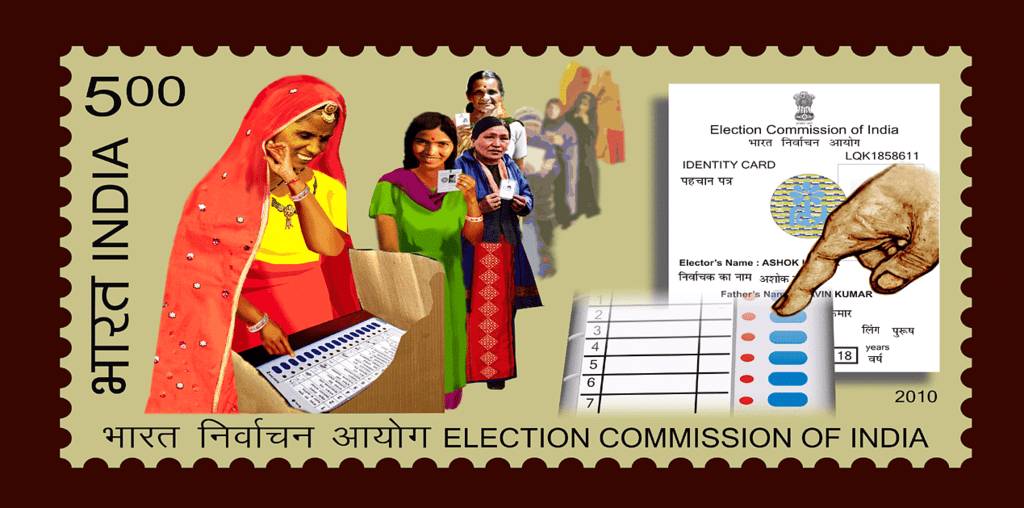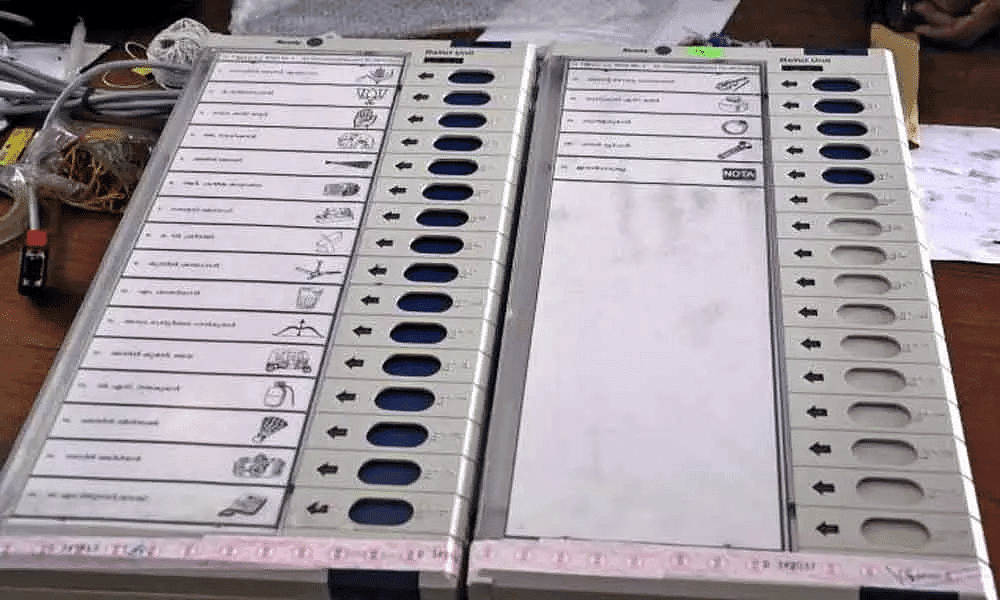Laxmikanth Summary: Elections | Indian Polity for UPSC CSE PDF Download
| Table of contents |

|
| Introduction |

|
| Electoral System |

|
| Election Machinery |

|
| Election Process |

|
Introduction
The study of elections in this context delves into democratic governance, electoral processes, and political structures. It assesses candidates' understanding of fundamental principles such as representation, voting systems, and electoral reforms. The examination emphasizes the broader impact of elections on shaping political landscapes and evaluates candidates' knowledge and analytical abilities in navigating the complexities of democratic governance and electoral systems.
Electoral System
Articles 324 to 329 in Part XV of the Constitution make the following provisions with regard to the electoral system in our country:

1. The Constitution (Article 324) provides for an independent Election Commission in order to ensure free and fair elections in the country. The power of supertendence, direction and conduct of elections to the Parliament, the state legislatures, the office of the President and the office of the
2. There is to be only one general electoral roll for every territorial constituency for election to the Parliament and the state legislatures.
3. The elections to the Lok Sabha and the state assemblies are to be on the basis of adult franchise. 4. Parliament may make provision with respect to all matters relating to elections to the Parliament and the state legislatures including the preparation of electoral rolls,
4. The state legislatures can also make provision with respect to all matters But, they can make provision for only those matters which are not covered by the Parliament.
- Article 323 B empowers the appropriate legislature (Parliament or statelegislature) to establish a tribunal for the adjudication of election disputes. It also provides for the exclusion of the jurisdiction of all courts (except the special leave appeal jurisdiction of the Supreme Court) in such disputes.
Election Machinery
• Election Commission of India (ECI) Under Article 324 of the Constitution of India, the Election Commission of India is vested with the power of superintendence, direction and control of conducting the elections to the Lok Sabha and State Legislative Assemblies.
• Chief Electoral Officer (CEO) The Chief Electoral Officer of a state/ Union Territory is authorised to supervise the election work in the state/Union Territory subject to the overall superintendence, direction and control of the Election Commission.

• District Election Officer (DEO) Subject to the superintendence, direction and control of the Chief Electoral Officer, the District Election Officer supervises the election work of a district.
• Returning Officer (RO) The Returning Officer of a Parliamentary or assembly constituency is responsible for the conduct of elections in the Parliamentary or assembly constituency concerned.
• Electoral Registration Officer (ERO) The Electoral Registration Officer is responsible for the preparation of electoral rolls for a Parliamentary / assembly constituency. The Election Commission of India, in consultation with the state / UT government, appoints an officer of the government or the local authorities as the Electoral Registration Officer.
• Presiding Officer: The Presiding Officer with the assistance of polling officers conducts the poll at a polling station.
• Observers The Election Commission of India nominates officers of Government as Observers for Parliamentary Constituencies. These observers are of various kinds:
1. General Observers:
2. Expenditure Observers:
3. Police Observers:
4. Awareness Observers:
5. Micro Observers:
6. Assistant Expenditure Observers:
Election Process
• Time of Elections Elections for the Lok Sabha and every state Legislative Assembly have to take place every five years, unless called earlier.
• Schedule of Elections When the five-year limit is up, or the legislature has been dissolved and new elections have been called, the Election Commission puts into effect the machinery for holding an election.
• Oath or Affirmation It is necessary for a candidate to make and subscribe an oath or affirmation before an officer authorised by the Election Commission.
• Election Campaign These are scrutinised by the Returning Officers and if not found to be in order can be rejected after a summary hearing. Validly nominated candidates can withdraw within two days after nominations have been scrutinised. The official campaign lasts at least two weeks from the drawing up of the list of nominated candidates, and officially ends 48 hours before polling closes. During the election campaign, the political parties and contesting candidates are expected to abide by a Model Code of Conduct evolved by the Election Commission on the basis of a consensus among political parties.
The model code lays down broad guidelines as to how the political parties and candidates should conduct themselves during the election campaign.

• Polling Days Polling is normally held on a number of different days in different constituencies, to enable the security forces and those monitoring the election to keep law and order and ensure that voting during the election is fair.
• Ballot Papers and Symbols After nomination of candidates is complete, a list of competing candidates is prepared by the Returning Officer, and ballot papers are printed. Ballot papers are printed with the names of the candidates (in languages set by the Election Commission) and the symbols allotted to each of the candidates. Since 1998, the Commission has increasingly used Electronic Voting Machines (EMVs) instead of ballot boxes. In 2003, all state elections and by elections were held using EVMs. Encouraged by this, the Commission took a historic decision to use only EVMs for the Lok Sabha election in 2004. More than 1 million EVMs were used in this election.
• Electronic Voting Machine An Electronic Voting Machine (EVM) is a simple electronic device used to record votes in place of ballot papers and boxes which were used earlier in conventional voting system. The advantages of the EVM over the traditional ballot paper / ballot box system are given here:
- It eliminates the possibility of invalid and doubtful votes which, in many cases, are the root causes of controversies and election petitions.
- It makes the process of counting of votes much faster than the conventional system.
- It reduces to a great extent the quantity of paper used thus saving a large number of trees making the process eco-friendly.
- It reduces cost of printing (almost nil) as only one sheet of ballot paper is required for each Polling Station.
• Counting of Votes After the polling has finished, the votes are counted under the supervision of Returning Officers and Observers appointed by the Election Commission. After the counting of votes is over, the Returning Officer declares the name of the candidate, to whom the largest number of votes have been given, as the winner and as having been returned by the constituency to the concerned House.
• Election Petitions Any elector or candidate can file an election petition if he or she thinks there has been malpractice during the election. Election petitions are tried by the High Court of the state involved, and if upheld can even lead to the restaging of the election in that constituency.
|
154 videos|973 docs|260 tests
|
FAQs on Laxmikanth Summary: Elections - Indian Polity for UPSC CSE
| 1. What is an electoral system? |  |
| 2. What is the role of election machinery in the electoral process? |  |
| 3. How does the election process work? |  |
| 4. What are the different types of electoral systems? |  |
| 5. What is the significance of the electoral system in a democracy? |  |
















